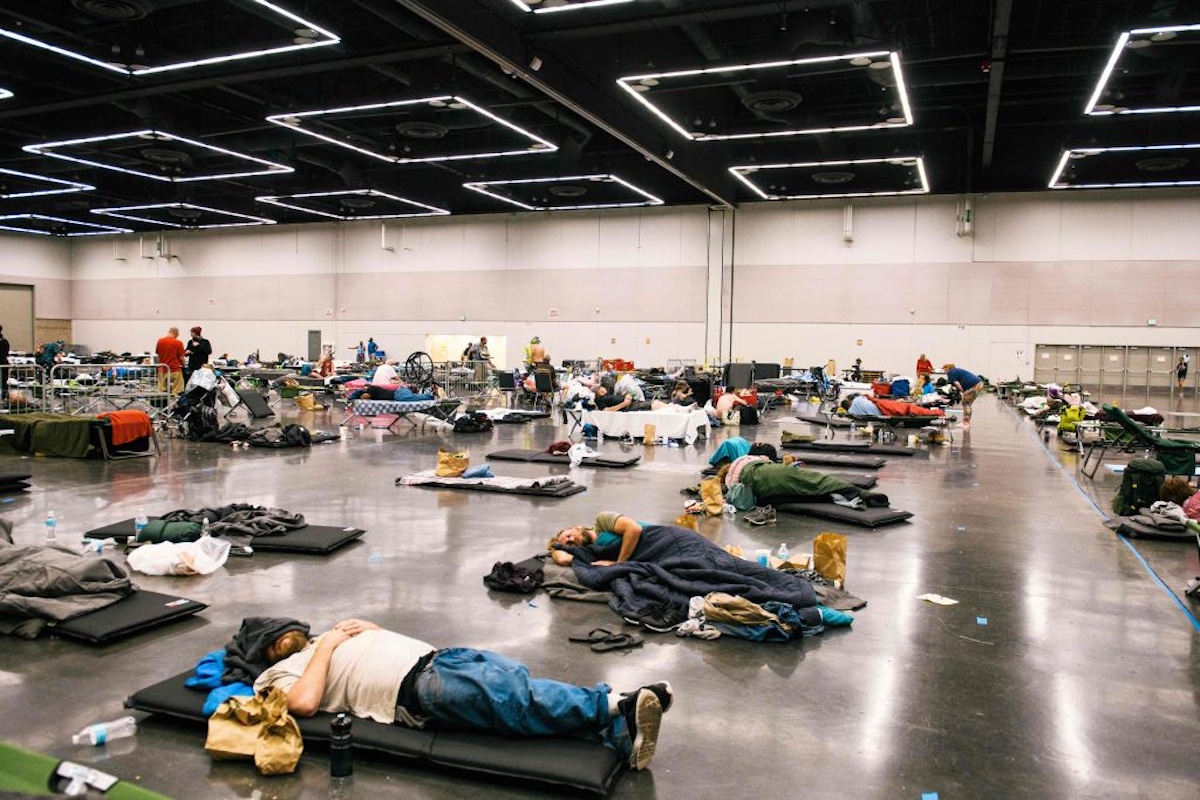

In June of 2021, a record-breaking heat wave scorched western North America, killing more than 500 people in Oregon, Washington, Idaho and Canada.
Now, Oregon lawmakers are taking steps to lower the death toll next time around. The state Senate passed a bill Tuesday that would help provide air conditioners on an emergency basis for those in need, among other things.
“In the summer of 2021, Oregon experienced a record heat wave, the 2nd worst natural disaster in our state’s recorded history,” Senator Kayse Jama (D-Portland), chair of the Senate Committee on Housing and Development, said in a statement. “Most people who passed away were seniors, people with disabilities, or people with underlying medical conditions. Senate Bill 1536 will protect more Oregonians by removing barriers to installing lifesaving devices.”
Most people who passed away during the last heat wave were those living in upper-level multifamily units or manufactured homes and didn’t have access to air conditioning or heat pumps. Senate Bill 1536 will protect our vulnerable Oregonians.#Orleg #Orpolhttps://t.co/eDzeAScoIB
— Senator Kayse Jama (He/Him) (@SenatorJama) March 3, 2022
Heat waves are currently the deadliest type of extreme weather event in the U.S., as The Weather Channel explained, killing an average of 130 people per year compared to hurricanes (46), tornadoes (70), lightning (48) and flooding (81). As the climate crisis continues, they are only expected to get more frequent and intense, and, therefore, deadlier, according to the U.S. Environmental Protection Agency (EPA). During the five-day heat wave in June of 2021, 96 Oregonians died of heat-related illnesses, OPB reported.
“Extreme heat is becoming a serious public health crisis in Oregon, particularly for seniors and other vulnerable folks,” Senator Deb Patterson (D-Salem), chair of the Senate Committee on Health Care, said in a statement. “We are working to prevent tragedies ahead by taking action on this emergency heat relief bill today. Today’s vote is another example of Oregonians stepping up for each other when it is most needed.”
The bill includes several new measures, including:
- Limiting restrictions placed on portable cooling units by landlords, homeowners associations and others.
- Ordering the Oregon Health Authority to create a program for providing emergency air conditioners and filters to eligible people.
- Mandating that new residences be built with adequate cooling abilities.
- Creating the Heat Pump Deployment Program to provide grants to buy and install heat pumps.
- Mandating that the Department of Energy fund grants for landlords to build community cooling centers.
- Expanding a Department of Human Services grant to fund the creation of heating and cooling shelters, in addition to clean air shelters.
The bill now travels to the House of Representatives for discussion before it can become law, according to the Senate statement.
Environmental justice groups supported the lawmakers’ efforts to protect vulnerable people from heat waves.
“The effects of the heat wave were deeply inequitable and most harmed the people least able to seek or afford relief,” Verde manager Oriana Magnera said in a public legislative hearing last month, as OPB reported.
Oregon Environmental Council Climate program director Nora Apter also spoke out in favor of heat pumps specifically.
“They are effective at both heating and cooling homes, use less energy than traditional systems and cost less to run than lower efficiency alternatives,” she said, as OPB reported. “They do not emit toxic air pollutants, and they produce less climate pollution than other heating and cooling appliances on the market.”

 233k
233k  41k
41k  Subscribe
Subscribe 